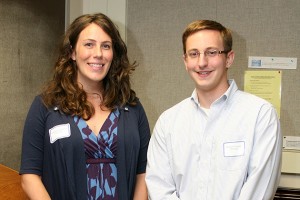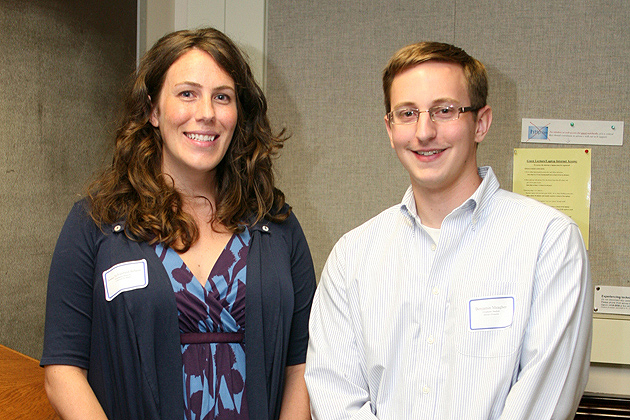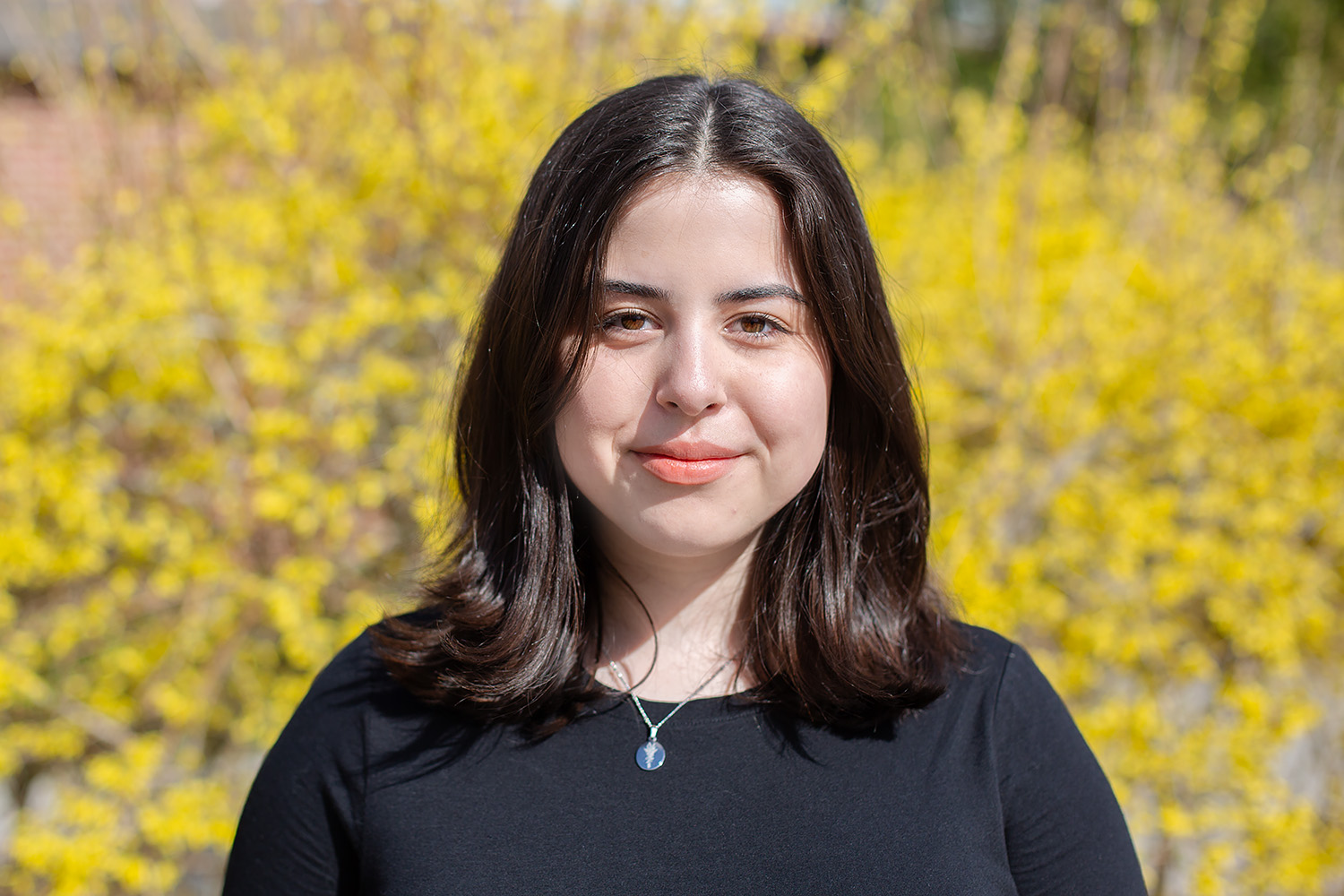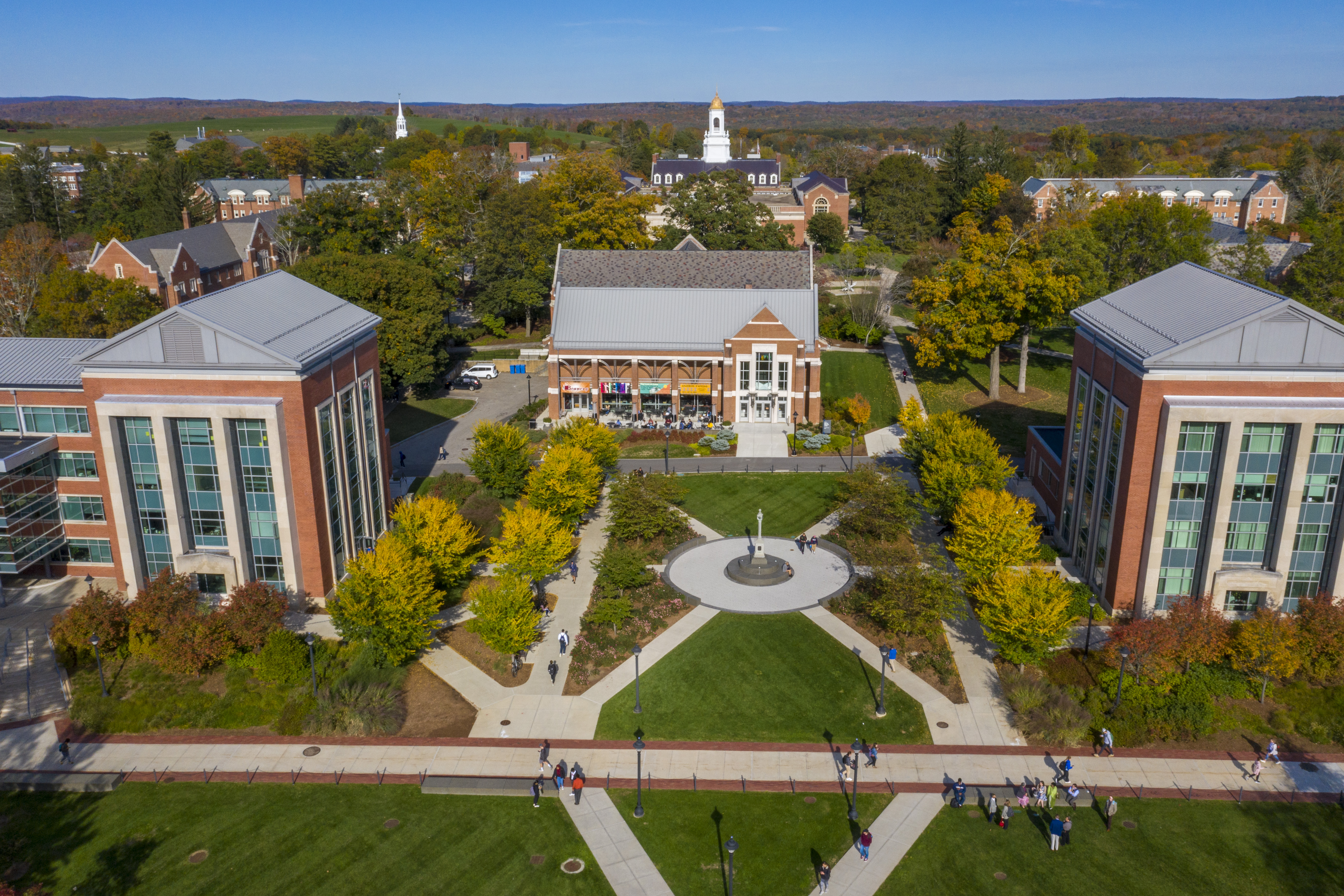
Two Ph.D. candidates in psychology, Anna Schierberl Scherr and Benjamin Meagher, are the first in what will be a long line of Farber Graduate Fellows, funded through a generous trust established by former faculty member Maurice Farber before he died in 2009.
The trust will provide an annual total of $24,000 to each fellow. The fellowships will also include tuition remission and health benefits, and will be held by students for two to five years, until they complete their degree.
Scherr, a graduate student in clinical psychology, expects to finish her Ph.D. in 2014. She completed a master’s degree last year, with a thesis looking at how mothers of overweight children in Latino and African-American families perceive their child’s weight. She is now studying couples-based behavioral programs that promote and maintain weight loss. Her adviser is Amy Gorin, associate professor of psychology in the College of Liberal Arts and Sciences.
She previously received research funding through the Center for Health, Intervention, and Prevention (CHIP) and from a Christine N. Witzel Award in CLAS.
Meagher, whose adviser in social psychology is associate professor Kerry Marsh, is studying how the physical environment relates to social psychological experiences, and how environment and experiences influence each other. One of the areas he is interested in is how the physical objects in a setting, such as furniture, can be designed to lessen or enhance feelings of social ostracism. Meagher received his master’s degree last spring, and last year he received a research award from the Religious Research Association.
Students who receive Farber awards have to maintain a 3.5 grade point average, demonstrate research productivity, and complete their degrees in a timely manner.
Extra funds from the trust will be used each year for undergraduate research activities such as the Summer Undergraduate Research Fellowships (SURF) program.
Maurice Farber was a faculty member in psychology from 1948 to 1977, when he retired. He was interested in theory-based research in social and personality psychology, on topics ranging from political psychology, to the psychology of travel, to suicide. His Ph.D. adviser at the University of Iowa was Kurt Lewin, who has been called the most influential social psychologist of the 20th century.
In applying for a Farber fellowship, students have to describe the theory on which their research is based or which it will assess, and show how their research will integrate theory and practical applications.
Farber himself was known as a good teacher and mentor to students in social and clinical psychology. A native of New Jersey, he left medical school in Switzerland to become a clinical psychologist. During World War II, he served in Army intelligence and psychological warfare, and was posted to Paris, London, the Ruhr area, and Berlin.
Stories about his time at UConn abound. A blue Chevy that he purchased from a graduate student for his daily commute to Storrs from Stafford Springs became the source of a continuing narrative based on his encounters with other drivers.
Once, when he hit the same car twice in two days on icy roads, he became engrossed in the angry reaction of the other driver, and he arrived at the psychology department with a black eye and an excited analysis of his social encounter.
At the time of his death, just short of his 97th birthday, he was living with a caretaker in an apartment on the Upper East Side of Manhattan. His former colleagues would drive from Storrs to visit him there.
A former department head in psychology, Jerome Smith, once described him this way: “He has taught well, extended our knowledge, and been a warm friend and delight to his colleagues.”
His legacy will be permanently felt in the psychology department as Farber Graduate Fellows benefit from his gift.



